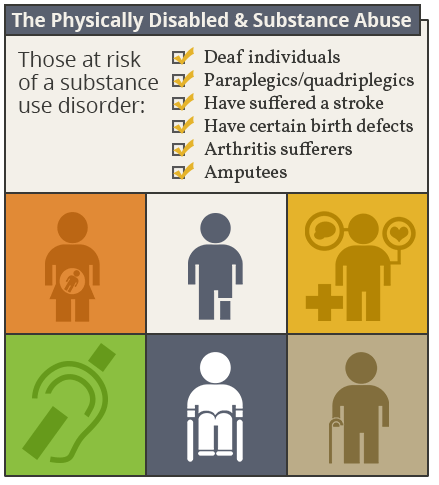Although there's no treatment for drug dependency, treatment choices explained below can assist you overcome an addiction and stay drug-free. Your treatment depends upon the drug utilized and any related medical or psychological health conditions you may have. Long-lasting follow-up is important to prevent regression. Treatment programs usually use: Person, group or household therapy sessions A concentrate on comprehending the nature of addiction, ending up being drug-free and avoiding regression Levels of care and settings that differ depending upon your requirements, such as outpatient, residential and inpatient programs The objective of cleansing, also called "detox" or withdrawal therapy, is to allow you to stop taking the addicting drug as rapidly and securely as possible.

Others may require admission to a hospital or a property treatment center. Withdrawal from different categories of drugs such as depressants, stimulants or opioids produces different negative effects and requires different methods. Detox might include gradually lowering the dose of the drug or momentarily substituting other compounds, such as methadone, buprenorphine, or a combination of buprenorphine and naloxone.
Naloxone temporarily reverses the results of opioid drugs. While naloxone has actually been on the market for many years, delivery systems such as Narcan (a naloxone nasal spray) and Evzio (a naloxone injection device) are now readily available, though they can Great site be extremely expensive. Evzio is a small injection gadget that provides voice directions to assist the user and automatically place the needle into the thigh to deliver the naloxone injection.
As part of a drug treatment program, behavior modification a https://gumroad.com/villee9vhe/p/little-known-questions-about-when-an-adolescent-comes-for-addiction-treatment kind of psychiatric therapy can be done by a psychologist or psychiatrist, or you might receive counseling from a certified alcohol and drug therapist. Therapy and counseling may be done with an individual, a family or a group. The therapist or counselor can: Assist you develop ways to handle your drug yearnings Suggest methods to avoid drugs and prevent regression Deal tips on how to handle a relapse if it happens Speak about problems regarding your task, legal issues, and relationships with household and friends Include family members to help them develop better communication skills and be supportive Address other mental health conditions Numerous, though not all, self-help assistance groups utilize the 12-step design first developed by Alcoholics Anonymous.
The self-help assistance group message is that dependency is a persistent condition with a danger of regression. Self-help assistance groups can reduce the sense of embarassment and seclusion that can lead to relapse. Your therapist or certified therapist can assist you find a self-help support system. You may also discover support system in your community or on the internet.
The smart Trick of How To Get More Clients At An Outpatient Addiction Treatment Program That Nobody is Talking About
Learning new coping skills and understanding where to find help are essential. Taking these actions can help: Drug dependency is linked to a number of issues that might be helped with therapy or counseling, consisting of other underlying mental health issues or marriage or family issues. Seeing a psychiatrist, psychologist or certified therapist may assist you restore your comfort and heal your relationships.
Seek instant treatment from a qualified mental health professional if you have any signs or symptoms of mental health issue. Assistance groups, such as Narcotics Anonymous or Twelve step programs, can be really effective in coping with addiction. Compassion, understanding and shared experiences can help you break your dependency and remain drug-free.

You can begin by discussing your substance usage with your primary physician, or request for a recommendation to a professional in drug addiction, such as a licensed alcohol and drug therapist, or a psychiatrist or psychologist. Take a relative or friend along (how to open an addiction treatment center). Here's some information to help you prepare yourself for your appointment.
To get an accurate idea of which treatment may assist, be truthful with your doctor or other mental health specialist. that you're taking, and the does. Inform the doctor about any legal or unlawful drugs you're using. your medical professional or mental health expert. Some questions to ask your physician may include: What's the best approach to my drug dependency? Should I see a psychiatrist or other mental health expert? Will I require to go to the healthcare facility or hang around as an inpatient or outpatient at a healing center? What are the alternatives to the primary approach that you're recommending? Are there any brochures or other printed material that I can have? What sites do you advise? Do not hesitate to ask other questions throughout your visit.
Be all set to answer them to reserve time to go over any points you wish to focus on. Your doctor may ask: What drugs do you utilize? When did your substance abuse first begin? How often do you use drugs? When you take a drug, just how much do you utilize? Do you ever feel that you might have a problem with drugs? Have you attempted to give up on your own? What happened when you did? If you tried to quit, did you have withdrawal symptoms? Have any household members slammed your drug utilize? Are you prepared to get the treatment needed for your drug dependency? Oct.
An Unbiased View of How To Determine The Appropriate Level Of Care For A Client In Addiction Treatment
Drugs and Alcohol Can Hijack Your BrainPeople with dependency lose control over their actions. They crave and seek out drugs, alcohol, or other substances no matter what the costeven at the risk of damaging friendships, injuring household, or losing jobs. What is it about addiction that makes people act in such destructive ways? And why is it so hard to give up? NIH-funded scientists Drug Detox are working for more information about the biology of addiction.
However even for those who have actually successfully quit, there's always a danger of the addiction returning, which is called regression. The biological basis of addiction assists to describe why people require a lot more than excellent intents or self-discipline to break their dependencies. "A common misperception is that dependency is an option or ethical issue, and all you have to do is stop (what is the first step of drug addiction treatment).
George Koob, director of NIH's National Institute on Alcohol Abuse and Alcoholism. "The brain really changes with addiction, and it takes a great offer of work to get it back to its normal state. The more drugs or alcohol you've taken, the more disruptive it is to the brain." Researchers have actually found that much of dependency's power depends on its capability to pirate and even destroy key brain areas that are indicated to help us survive.
It does this by changing on brain circuits that make you feel fantastic, which then inspires you to duplicate those habits. In contrast, when you're in danger, a healthy brain presses your body to react quickly with fear or alarm, so you'll leave harm's method. If you're lured by something questionablelike eating ice cream prior to supper or buying things you can't affordthe front areas of your brain can assist you decide if the effects are worth the actions.
Drugs or alcohol can pirate the pleasure/reward circuits in your brain and hook you into wanting a growing number of. Dependency can also send your emotional danger-sensing circuits into overdrive, making you feel nervous and stressed out when you're not using the drugs or alcohol. At this phase, individuals frequently utilize drugs or alcohol to avoid feeling bad instead of for their pleasurable results.